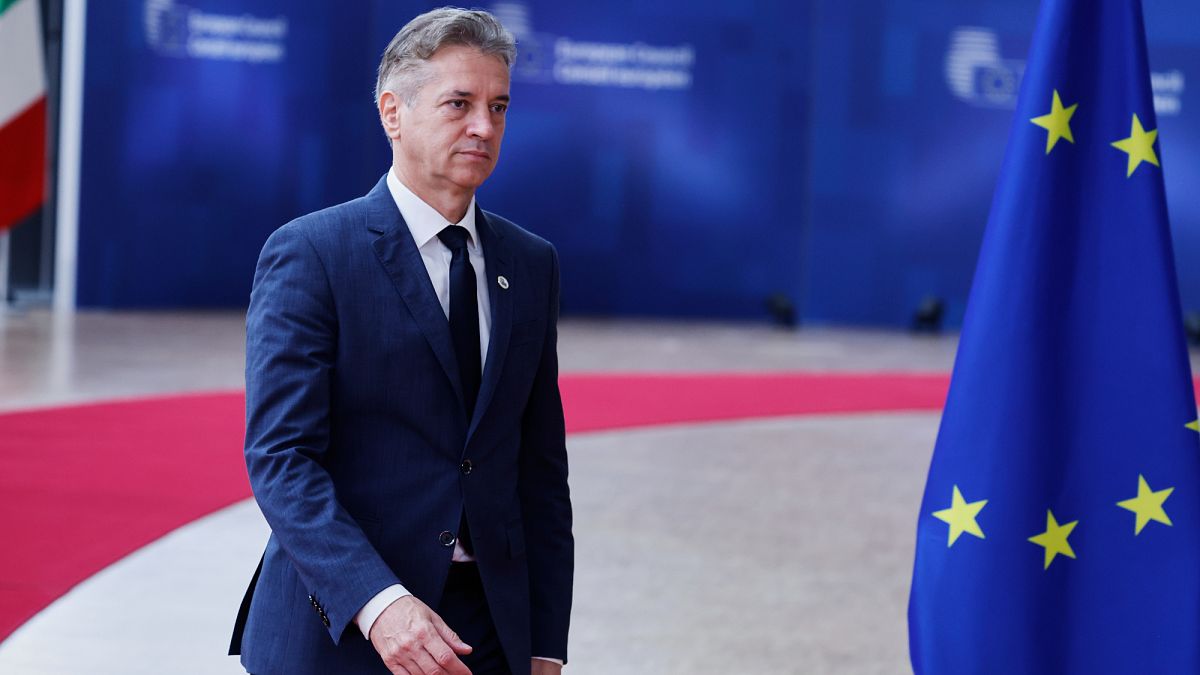

In recent days, three significant developments have unfolded across different regions, showcasing diverse socio-political landscapes and underscoring the interconnected nature of global issues. From Slovenia’s stance on international arms trade to the ongoing discourse surrounding LGBTQ+ rights in Hungary, and progressive employment reforms proposed in Australia, these stories highlight the varied paths nations are taking in navigating complex challenges.
Slovenia has taken a groundbreaking step by becoming the first European Union country to ban the trade of weapons with Israel. This decision aligns with Slovenia’s consistent advocacy for the recognition of a Palestinian state, which it officially acknowledged in June of the previous year. The move is part of Slovenia’s broader call for increased humanitarian aid to Gaza and an effective ceasefire in the region. This pioneering action underscores Slovenia’s commitment to its foreign policy principles and reflects its strategic approach towards encouraging peaceful resolutions through diplomatic channels. Such a policy position not only emphasizes Slovenia’s role in the European political sphere but also sends a message about the prioritization of peaceful dialogue and humanitarian concerns in international relations.
Meanwhile, across Europe in Hungary, the mayor of Budapest is under investigation following his participation in a banned LGBTQ+ Pride march. The event, intended as a celebration of visibility and a call for equal rights, clashed with the government’s stance led by Prime Minister Viktor Orbán. The ruling party argues that such celebrations infringe upon what they see as children’s rights to moral and spiritual purity. This reflects broader political tensions within Hungary, where debates around LGBTQ+ rights remain a divisive issue. The inquiry into the mayor’s role exemplifies the ongoing debate regarding human rights, public expression, and governmental regulation. It reveals the complexities faced by those advocating for personal freedoms within environments that may not fully embrace such progressive ideals.
Moving away from Europe, the Australian state of Victoria is on the cusp of implementing pioneering legislation that would grant employees the right to work from home for two days each week. Announced by Victorian Premier Jacinta Allan during the Labor Party’s state conference, this initiative represents a potential shift in workplace dynamics across the nation. While the proposal is yet to be debated in parliament, its anticipation is currently stirring discussions amidst employers and lobbyists concerned about the implications for workplace control and productivity. If passed, the law would place Victoria at the forefront of labor reforms aimed at adapting to the evolving realities of work-life balance, particularly in the post-pandemic era. The proposal positions Victoria as a potential model for other regions considering similar adaptations, highlighting a proactive approach to addressing modern employment expectations and the well-being of workers.
These stories, while diverse in their geographical and political contexts, collectively underscore a global momentum towards addressing deeply rooted social, ethical, and economic issues. Each case reflects an effort to balance traditional values with the progressive demands of a changing world. In Slovenia, Hungary, and Victoria, efforts are being made to harmonize national identity with the needs for global citizenship and inclusion. While challenges remain, such actions suggest a movement towards thoughtful engagement with complex issues, paving the way for dialogue and potential resolution.
Amidst these developments, the importance of calm, considerate discourse cannot be overstated. Whether it is navigating the delicate landscape of international relations, advocating for personal freedoms within societies, or pioneering ahead with labor reforms, these instances remind us of the critical role politicians, activists, and citizens alike play in shaping a future that accommodates varied perspectives. By staying informed and engaged, individuals can contribute to ongoing dialogues that are essential in creating inclusive and equitable societies.
Source: {link}
